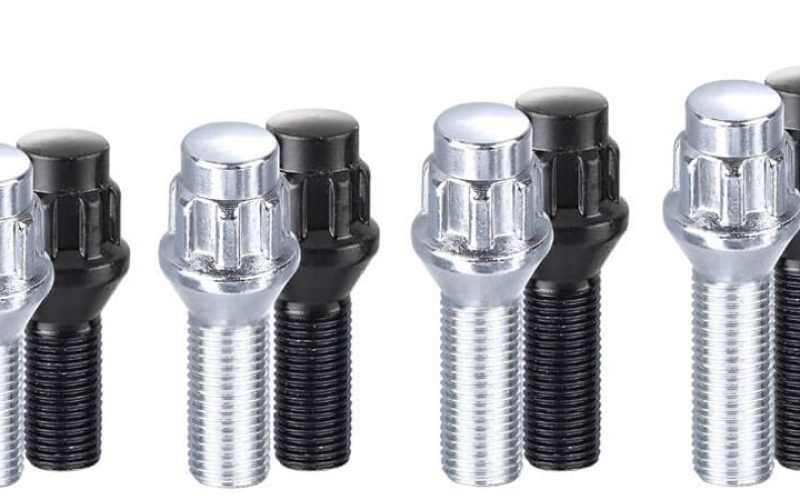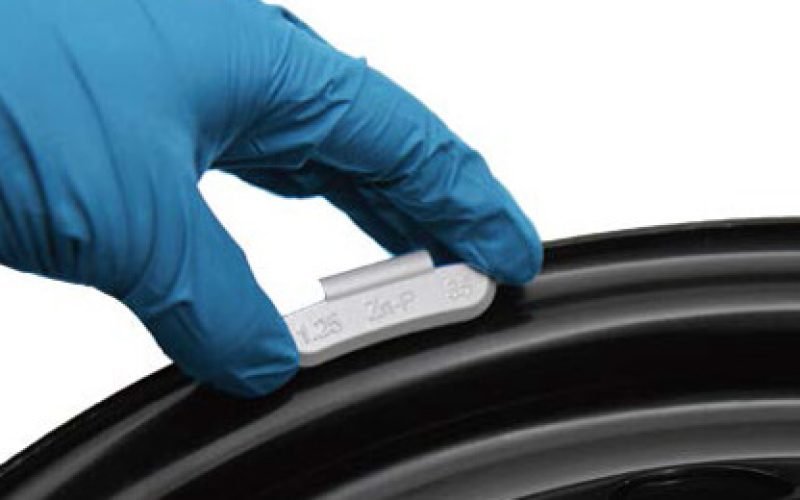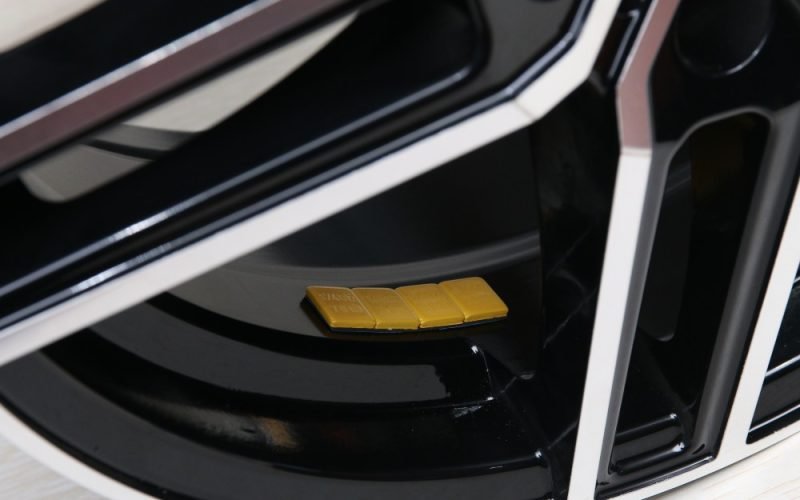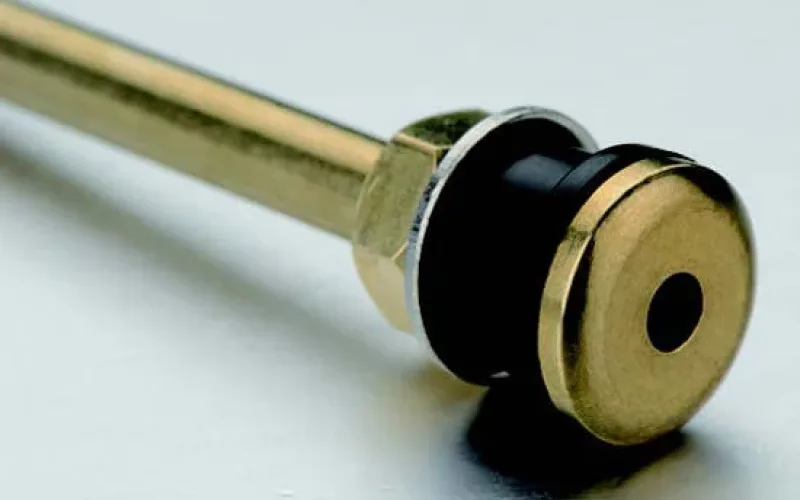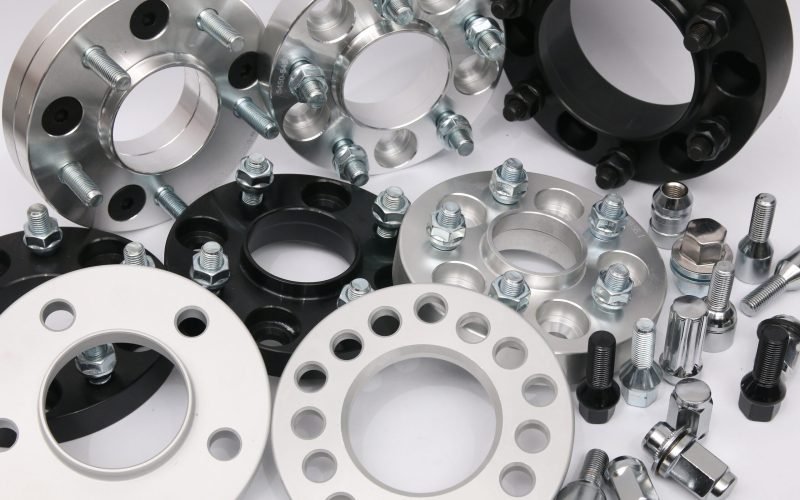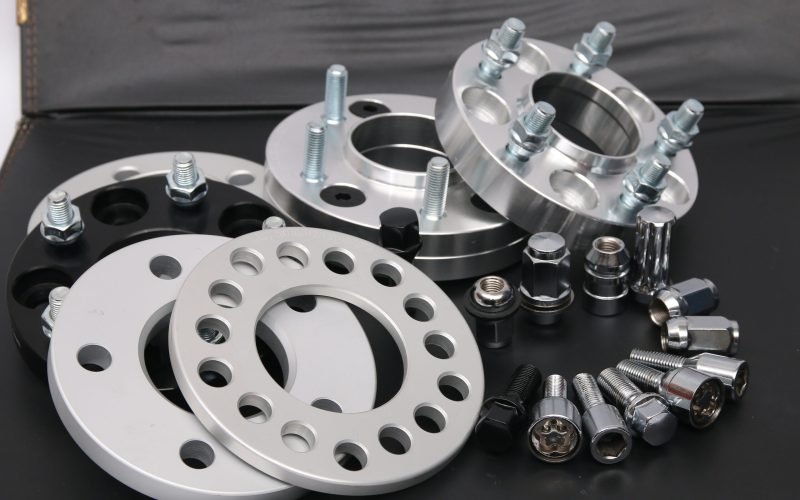

admin1
August 4, 2025
Schrader Valve Core Trends Every Car Owner Should Know
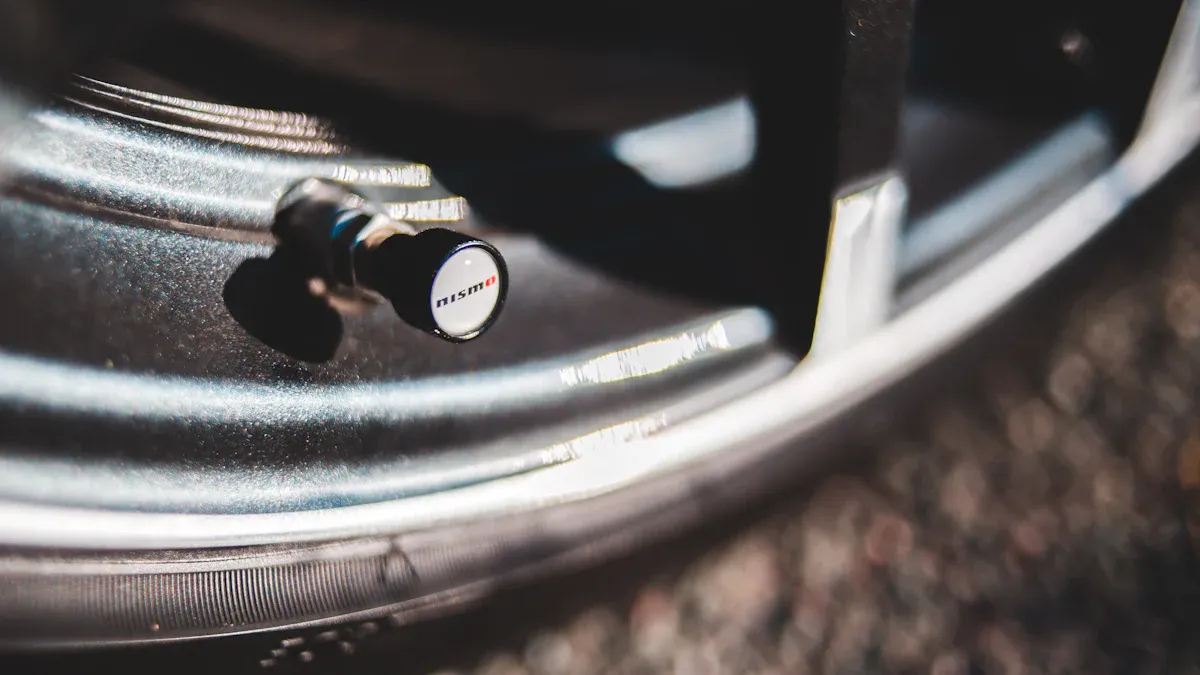
When you want your car or a/c system to work smoothly, picking the right schrader valve core matters. FORTUNE’s heavy-duty nickel-plated brass core stands out for its strong build and lasting seal. More drivers and HVAC pros trust this core because it keeps out rust and holds pressure, even in tough conditions. The demand for these valve cores keeps rising, with the market expected to grow from $1.5 billion in 2022 to $2.3 billion by 2030. This growth comes from more electric cars, strict tire pressure rules, and the need for reliable air conditioning.
What Makes a Schrader Valve Core the Best?
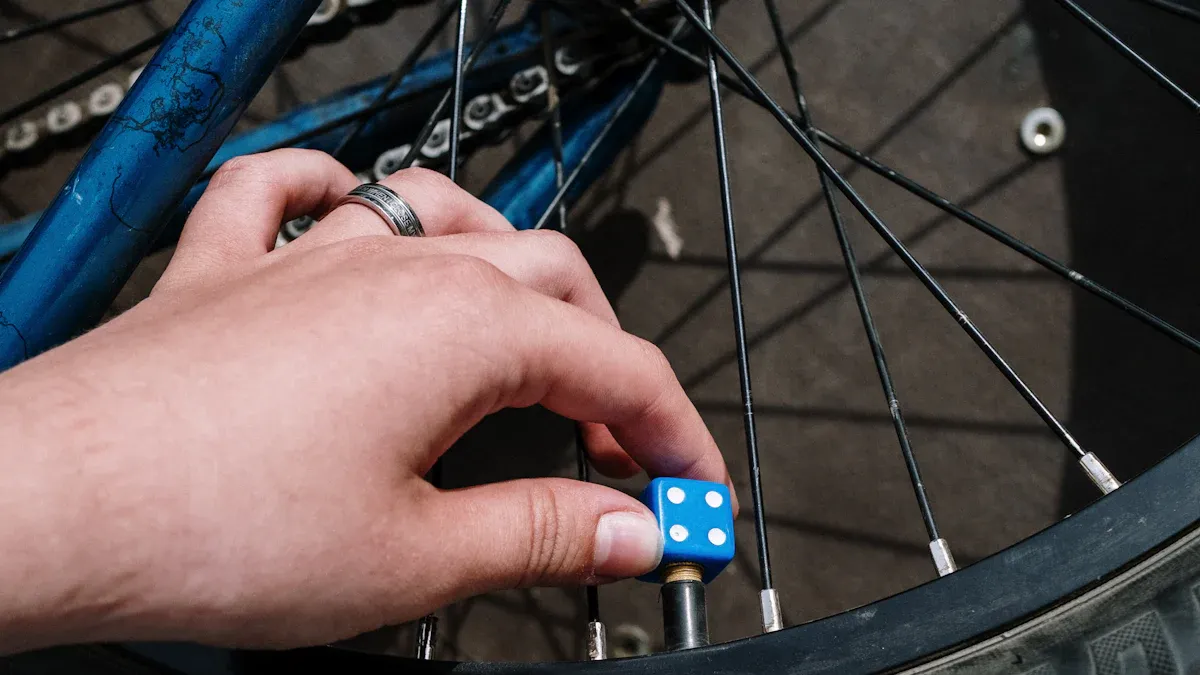
Key Features of a Quality Schrader Valve Core
When you look for a great Schrader valve core, you want something that keeps air or refrigerant inside your system without leaks. The core has a threaded shell and a poppet valve. This design lets air move in or out when you need it, but seals tight when you don’t. You should always keep the valve cap on. The cap protects the core from dirt and damage. If you forget the cap, you might see leaks or wear much sooner.
Industry experts say the best valve cores use very precise parts. The pin inside must sit just right, or you could get leaks. Some cores use two types of seals—one rubber and one metal. This double seal helps stop leaks, even if one seal wears out. You also want a core that fits your tools and service ports. If you work on your car or a/c system, you’ll notice that high-flow cores can speed up charging and evacuation. These high-flow types still fit standard service ports, so you don’t need special tools.
Tip: Never reuse a Schrader valve core. Once you install it, the seal changes shape and won’t work as well if you take it out and put it back in. Always test for leaks with the cap on, since the cap and core work together to keep things sealed.
Material and Corrosion Resistance in a/c Schrader Valves
The material of your valve core matters a lot, especially in a/c schrader valves. You want something that stands up to moisture, chemicals, and pressure. Here’s a quick look at the most common materials and how they handle corrosion:
| Material | Common Use in Valve Cores | Corrosion Resistance Properties |
|---|---|---|
| Brass | Most a/c system and tire valves | Good resistance, strong, works well under high pressure |
| Aluminum | Some valves, mostly in bikes | Light, okay resistance, but not as tough as brass or stainless |
| Stainless Steel | Special or heavy-duty valves | Best rust resistance, lasts longest in harsh conditions |
| Plastic | Seals inside the core | Won’t rust, helps stop leaks, but not used for the whole core |
Brass is the top choice for most a/c system service ports. It resists rust and handles pressure well. Stainless steel is even tougher, but you usually see it in special cases. Plastic parts help seal the core, but you won’t find a full plastic core in your car or a/c system.
Performance and Reliability in a/c System Applications
You want your a/c system to work every time you turn it on. That means you need a valve core that seals tight and lasts a long time. High-quality cores keep refrigerant inside, so your system stays cool and efficient. If the core leaks, you lose pressure and cooling power.
A good core fits perfectly in the service ports. It opens and closes smoothly, so you can add or remove refrigerant without trouble. The best cores use strong materials and precise seals. This means you won’t have to worry about leaks, even after years of use. Always check that your valve core matches your system and tools. This helps you avoid problems and keeps your a/c running strong.
Top Schrader Valve Core Brands and Models in 2024
When you look for the best valve core for your car or a/c system, you want to know which brands stand out. The market has many choices, but a few names keep coming up in industry news and among professionals. Here are the top brands and models you should know about this year.
FORTUNE Heavy-Duty Nickel-Plated Schrader Valve Core
You want a valve core that lasts and keeps your system sealed tight. FORTUNE’s heavy-duty nickel-plated model checks all the boxes. This core uses premium brass with a nickel coating, so it fights off rust and stands up to tough conditions. You can use it in both tires and a/c service ports. FORTUNE tests every schrader valve core before shipping, so you get a product you can trust. Many car owners and HVAC techs pick this core because it works well in high-pressure systems and keeps leaks away. If you want something reliable for your vehicle or a/c, this is a top pick.
Tip: FORTUNE’s valve cores fit most standard service ports, so you don’t have to worry about compatibility.
Schrader Original Equipment a/c Schrader Valves
Schrader is a name you see everywhere in the valve core world. Industry reports list Schrader as a leading global brand, right up there with names like Continental, Michelin, and Goodyear. Schrader keeps pushing new ideas, like their TPMS-compatible valve cores. Many car makers use Schrader original equipment a/c Schrader valves in their vehicles. HVAC pros say these cores hold up well in the field. They notice fewer leaks and fewer callbacks when they use Schrader valves and metal caps. You can count on these cores to work with most a/c service ports and keep your system running smoothly.
Standard Motor Products High-Performance Valve Cores
Standard Motor Products makes high-performance valve cores that many shops trust. These cores use strong materials and tight seals, so they work well in both tires and a/c systems. You get a good fit in most service ports, and the design helps stop leaks even under heavy use. Standard Motor Products has built a solid reputation for quality and reliability. If you want a core that can handle tough jobs and last a long time, this brand is worth a look.
Here’s a quick look at some of the top brands recognized in 2024:
| Brand Category | Recognized Top Manufacturers in 2024 (Tyre Valve Core Market) |
|---|---|
| Leading Global Brands | Schrader, TRW, Continental, Huf, Presta, Dunlop, ACDelco, Valeo, Alligator, Michelin, Goodyear, Pirelli, Bridgestone, Apollo Tyres, Hankook |
You have a lot of choices, but sticking with trusted brands like FORTUNE, Schrader, and Standard Motor Products helps you avoid problems and keeps your system safe.
FJC and Other Notable a/c System Valve Core Brands
When you walk into an auto parts store or talk to a mechanic, you will probably hear about FJC. This brand stands out for its wide range of a/c system valve cores and tools. Many professionals trust FJC because their products are easy to find and work well with most vehicles. For example, the FJC 2672 Standard Valve Core is a favorite among shops. It fits many systems and comes at a good price, so you do not have to spend a lot to get quality.
You will also see Four Seasons on the shelves. Mechanics like this brand because it meets or beats OEM standards. Their 69500 A/C Repair Tool is popular for fixing and replacing valve cores. Four Seasons makes sure their products work with many car models, so you do not have to worry about fit. The brand also matches up with others like NAPA Temp, Mei, Omega, and Santech. This means you can swap parts if you need to, which makes repairs easier.
FJC offers more than just single valve cores. They have kits like the OE R134A Replacement Service Port Assortment. This kit gives you different sizes and types, so you are ready for any job. Mechanics like having these options because it saves time and keeps customers happy. When you pick a brand like FJC or Four Seasons, you know you are getting parts that professionals use every day.
Comparison of Leading Schrader Valve Cores
Choosing the right schrader valve core can feel tricky with so many brands out there. Let’s break down what makes each top brand special:
| Brand | Main Strengths | Popular Products/Features |
|---|---|---|
| FORTUNE | Heavy-duty, nickel-plated, reliable | Fits most ports, tested for quality |
| Schrader | OEM trusted, TPMS-safe, global leader | Used by car makers, strong sealing |
| Standard Motor | High-performance, tight fit | Handles tough jobs, long-lasting |
| FJC | Wide range, easy to find, affordable | Standard cores, service port kits |
| Four Seasons | OEM quality, interchangeable | Repair tools, fits many brands |
If you want the best for your car or a/c system, stick with brands that professionals trust. FORTUNE gives you strong, nickel-plated cores that last. Schrader leads in original equipment and TPMS safety. Standard Motor Products offers high-performance options for tough jobs. FJC and Four Seasons make it easy to find the right part, with lots of choices and good prices. You can feel confident picking any of these brands for your next repair.
Emerging Trends in Schrader Valve Cores for a/c Systems
Advanced Materials and High-Pressure Seals
You might notice that new valve cores look and feel different from older ones. Manufacturers now use advanced materials like nickel-plated brass and stainless steel. These metals help your valve core resist rust, even when exposed to moisture or chemicals. Some brands add special coatings that make the core last longer and work better under high pressure. You get a tighter seal, which means fewer leaks and less maintenance. If you drive in extreme weather, these materials keep your a/c system running smoothly. The push for better materials comes from the need for stronger, longer-lasting parts in modern vehicles.
Leak-Resistant and TPMS-Safe Innovations
You want your tires and a/c system to stay leak-free. Recent innovations make this easier than ever. Many new valve cores now feature a red Teflon band. This band creates a secure seal when you install the core, blocking air leaks and keeping out moisture. Nickel plating helps prevent rust and stops the core from sticking inside the valve stem. If your car uses a Tire Pressure Monitoring System (TPMS), you need a valve core that fits just right. Short style valve cores work well with TPMS, even in aluminum stems. These cores handle temperatures from -65°F to 250°F, so you can trust them in any climate.
Tip: Always check if your replacement valve core is TPMS-safe. This helps you avoid warning lights and keeps your system working as it should.
Eco-Friendly and Long-Life Schrader Valve Core Designs
You care about the environment, and so do many manufacturers. In the past few years, companies started using recycled metals and biodegradable plastics in valve core production. These eco-friendly materials reduce waste and support global sustainability goals. Some valve cores now use corrosion-resistant coatings that last longer and have less impact on the planet. New sealing technology also means your valve core will last longer, so you replace it less often. This shift helps you and the environment by cutting down on waste and supporting a circular economy.
- Eco-friendly trends include:
- Recycled metals and biodegradable plastics
- Corrosion-resistant coatings
- Longer-lasting seals
- Support for global green initiatives
You get a schrader valve core that works hard and helps protect the planet at the same time.
How to Choose the Right Schrader Valve Core for Your Vehicle or a/c System
Identifying the Correct Valve Core Size and Type
Picking the right valve core for your car or a/c system can feel confusing, but you can make it simple by focusing on a few key points. Here’s what you should look for:
- Valve cores come in standard thread and body sizes. This means most will fit universal caps and tools, but you still need to check your system’s requirements.
- Make sure the valve core works with the fluids or refrigerants in your system. Some cores handle R12, R134a, R1234yf, nitrogen, or air. Always match the core to your system’s needs.
- Check if the valve core fits the correct service port. High-side and low-side ports may need different cores, so always double-check before installing.
- Look for sealing features like dual O-rings on high-flow valve cores. These help stop leaks and keep your system running smoothly.
- Follow your vehicle’s OEM specifications. Some brands, like Schrader Pacific, design their valve cores to meet exact OEM sizes and standards.
- The design matters. A good schrader valve core uses a spring-actuated check valve with strong elastomeric seating and fluoropolymer seals. This helps keep everything sealed tight.
- Always consider your vehicle or a/c system’s specific needs. There are many types of valve cores, so check your owner’s manual or ask a professional if you’re not sure.
Tip: If you’re ever in doubt, bring your old valve core to the parts store. The staff can help you match it to the right replacement.
Ensuring Compatibility with Your a/c System
You want your new valve core to work perfectly with your a/c system. Start by checking the size of the valve core for the pressure side you’re working on. Standard cores usually fit low-pressure service ports, while larger cores go on high-pressure sides. Next, look at the seal material. It must match the refrigerant and oil in your system. Some seal materials work better with certain refrigerants, like R134a or R1234yf, and some oils can affect how well the seal holds up. If you’re not sure, talk to a local parts expert or reach out to the manufacturer. They can help you pick a valve core that matches your system’s fluids and oils. Always test the new core after installation to make sure it seals well and keeps your system safe.
Durability, Maintenance, and Replacement Tips
You want your valve cores to last as long as possible. Good maintenance and careful installation make a big difference. Here’s how you can keep your valve cores in top shape:
- Use a torque wrench set between 3-5 inch-pounds when tightening the valve core. This helps you avoid damaging the brass body by overtightening.
- Apply a lubricant with about 100 cSt viscosity. This keeps the valve moving smoothly and helps it fit better.
- Check the valve cap for an O-ring seal. A Shore hardness of around 60A is best for keeping air and refrigerant inside.
- Look closely at the valve stem. Even tiny cracks, as small as 0.1 mm, can cause leaks. Also, inspect the neoprene seal inside the core to make sure it’s not worn out.
- Always use the right tools. A 4-way valve tool with a torque range of 0-20 inch-pounds helps you install and remove cores without damage.
- Make sure the valve stem hex nut is tightened to 7-10 Nm, and that the stem has an 11 mm hex for a proper fit.
- When replacing, remove old valves carefully with a special removal tool. Insert new TR414 valves gently to avoid bending or breaking anything.
Note: Regular checks and careful installation help prevent leaks, corrosion, and other problems. This keeps your a/c system and tires working their best.
Common Problems and Solutions with Schrader Valve Cores
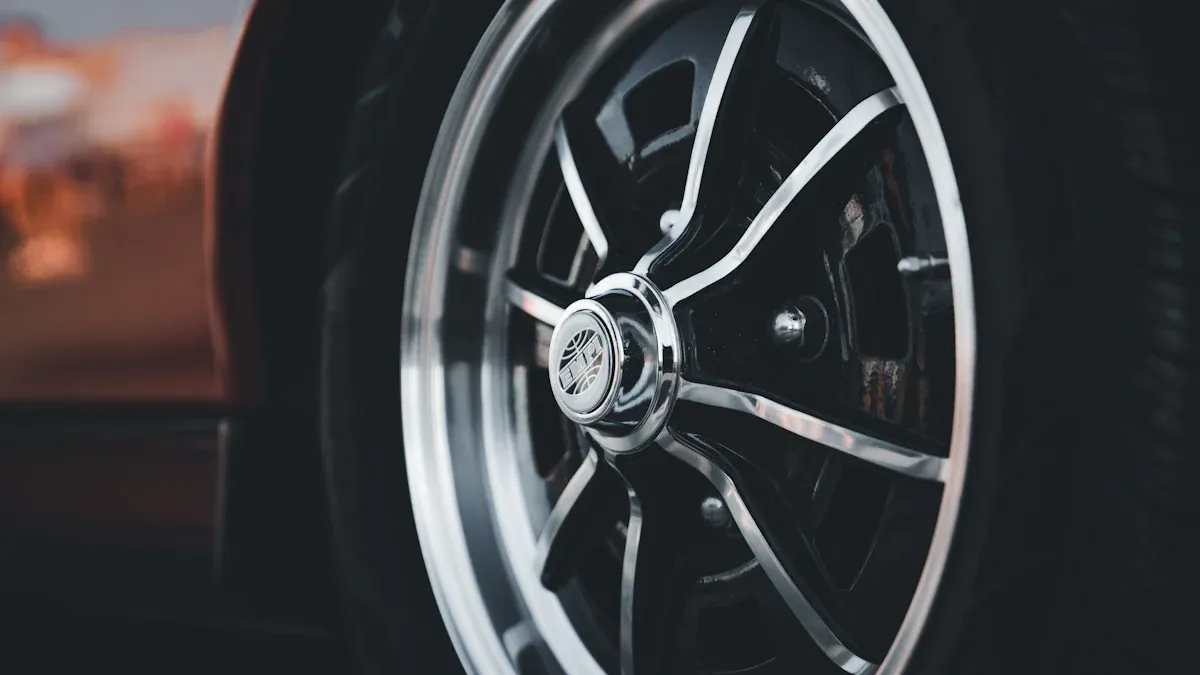
Diagnosing and Fixing Leaks in a/c Schrader Valves
You might notice your car’s air conditioning isn’t as cold as it used to be. One of the first things you should check is the Schrader valve core. Leaks are the most common problem here. Over time, regular use or rough servicing can wear out the valve or damage the small internal seals. If you lose the valve cap or it gets damaged, dirt and moisture can sneak in, making leaks even worse.
To find a refrigerant leak, you have a few good options. Many technicians use a refrigerant leak detector because it quickly finds escaping gas. You can also try the UV dye test. Add a special dye to your system, run the A/C, and then shine a UV light on the valve. If you see glowing dye, you’ve found your leak. For a simple check, spray soapy water on the valve. Bubbles mean you have a leak.
When you find a leaking Schrader valve core, the best fix is to replace it. Don’t try to seal it or use quick fixes. Always depressurize the system first, or you could get hurt. Use a special tool to remove the old core and install a new one. This keeps your system safe and working right.
Preventing Corrosion and Sticking in a/c System Valve Cores
Corrosion and sticking can cause big problems for your A/C system. Moisture and debris are the main culprits. To prevent these issues, choose valve cores made with corrosion-resistant materials or coatings. Clean the valve area regularly to remove dirt and buildup. Lubricate the moving parts with the right oil to keep everything working smoothly. Don’t forget to check your valve cores at least once a year. Early inspections help you spot trouble before it leads to a refrigerant leak.
Tip: Always use the correct gaskets and seals for your system. This helps prevent leaks and keeps your valve core in top shape.
Best Practices for Installation and Longevity
You want your Schrader valve core to last as long as possible. Start by using the right tools during installation. This helps you avoid damaging the valve. Inspect the core for signs of wear or corrosion before you put it in. Clean the area to keep out dirt and debris. Lubricate the moving parts to reduce friction and help the valve last longer. If you see any damage or worn seals, replace them right away. Proper installation and regular checks will keep your system running smoothly and help you avoid a refrigerant leak down the road.
You want your car or a/c system to last, so choosing the right valve core matters. Nickel-plated brass cores stand out because they resist rust, handle tough weather, and last longer in harsh places like under your hood. New designs use special seals and tough metals to stop leaks and work with TPMS. Always check your vehicle’s part number and use the right O-ring for your system. When you match the core to your car, you get the best performance and fewer problems down the road.
FAQ
How often should you replace a Schrader valve core?
You should check your valve cores every time you service your tires or a/c system. If you see leaks, corrosion, or damage, replace them right away. Most last several years, but harsh conditions can shorten their life.
Can you use the same valve core for tires and a/c systems?
No, you should not. Tire and a/c valve cores look similar, but they use different seals and materials. Always match the valve core to your system. Using the wrong type can cause leaks or damage.
What tools do you need to change a Schrader valve core?
You need a valve core removal tool. For best results, use a torque wrench set to 3–5 inch-pounds. This helps you avoid overtightening. Some kits include both tools for easy repairs.
Tip: Always wear safety glasses when working with pressurized systems.
How do you know if a Schrader valve core is leaking?
Look for these signs:
| Sign | What It Means |
|---|---|
| Hissing sound | Air or refrigerant escaping |
| Bubbles | Leak when sprayed with soap |
| Pressure drop | System loses pressure fast |
If you notice any of these, replace the valve core.
See Also
Understanding The Common Page Not Found Error Message
